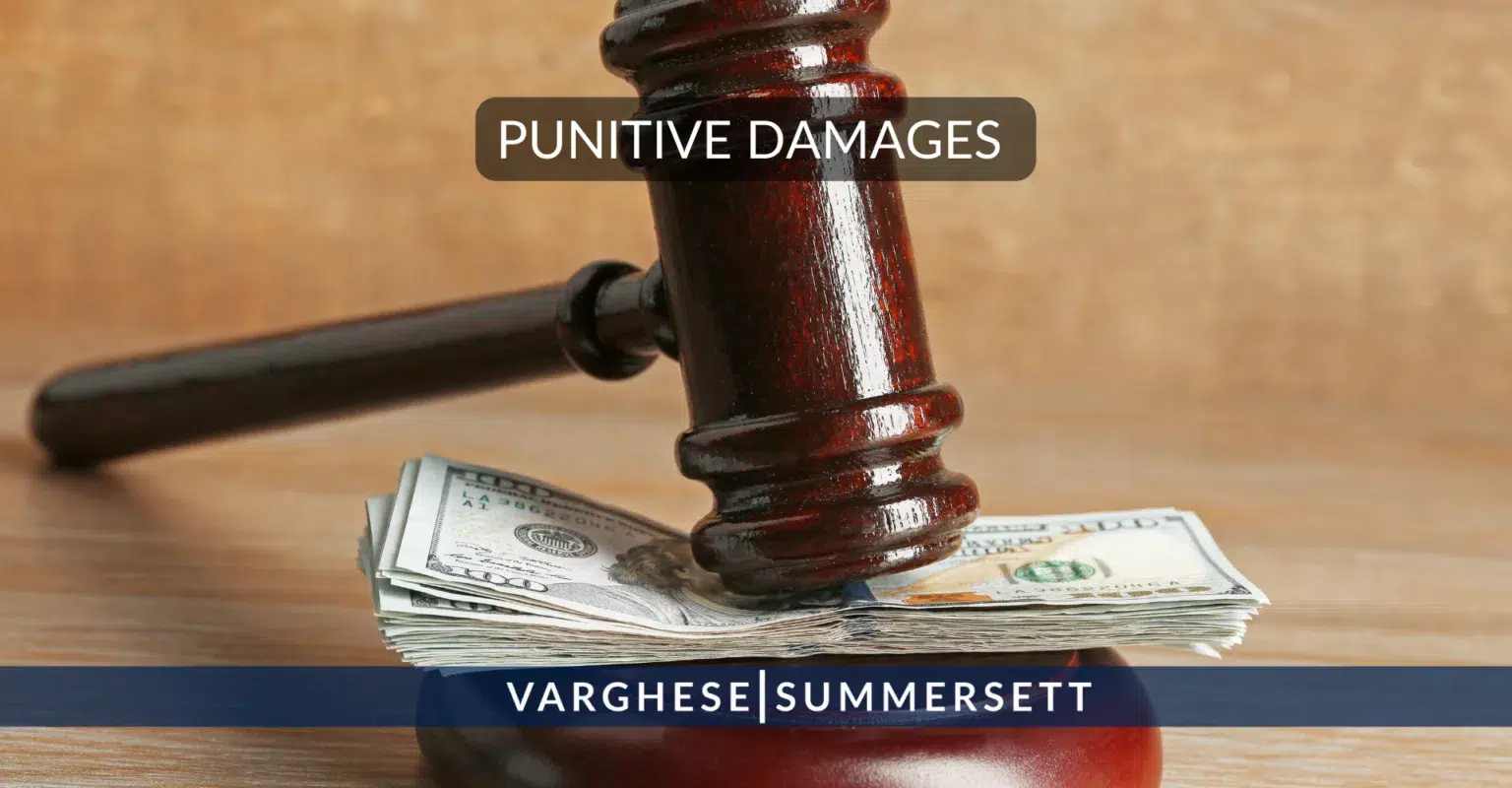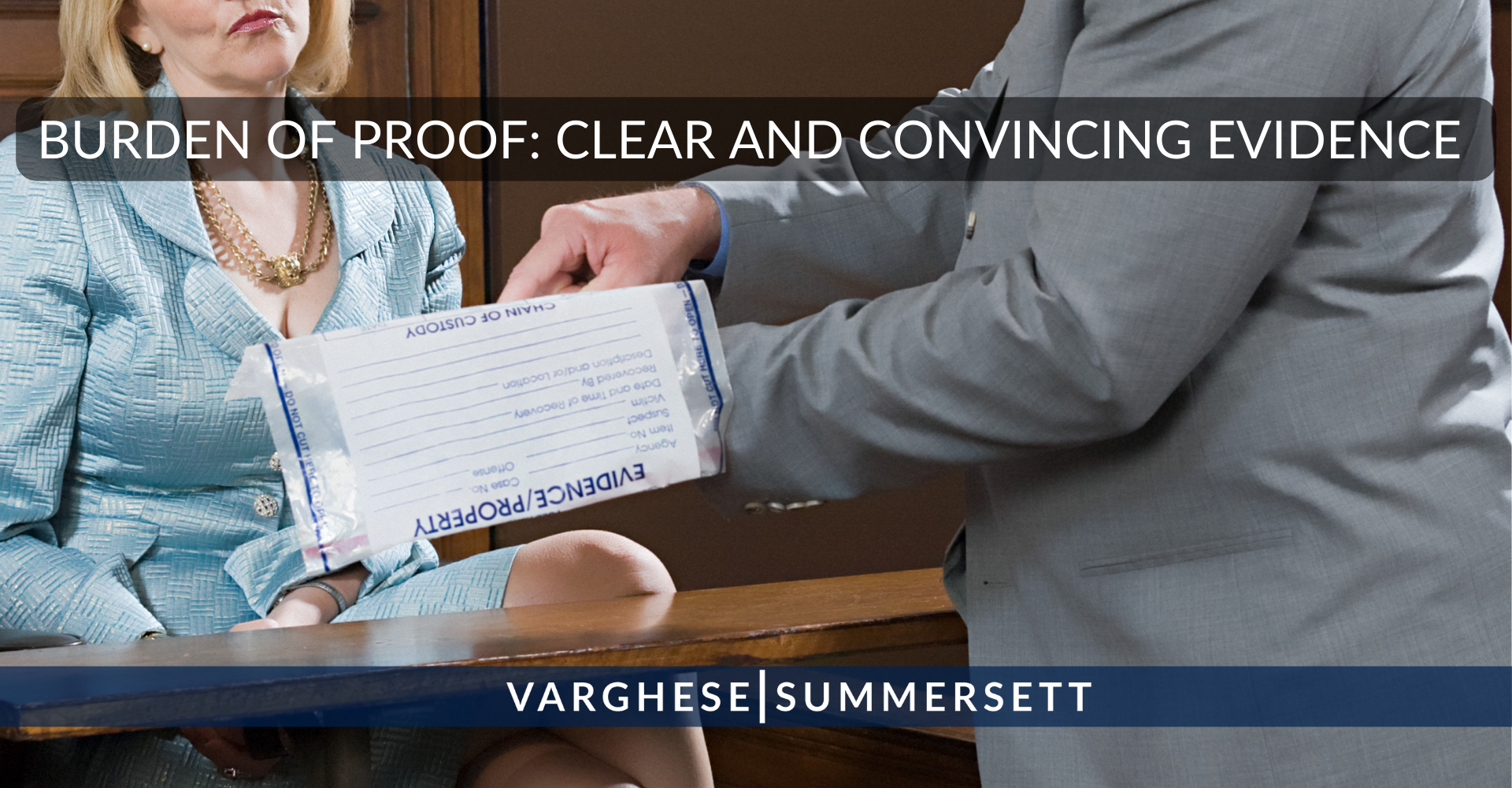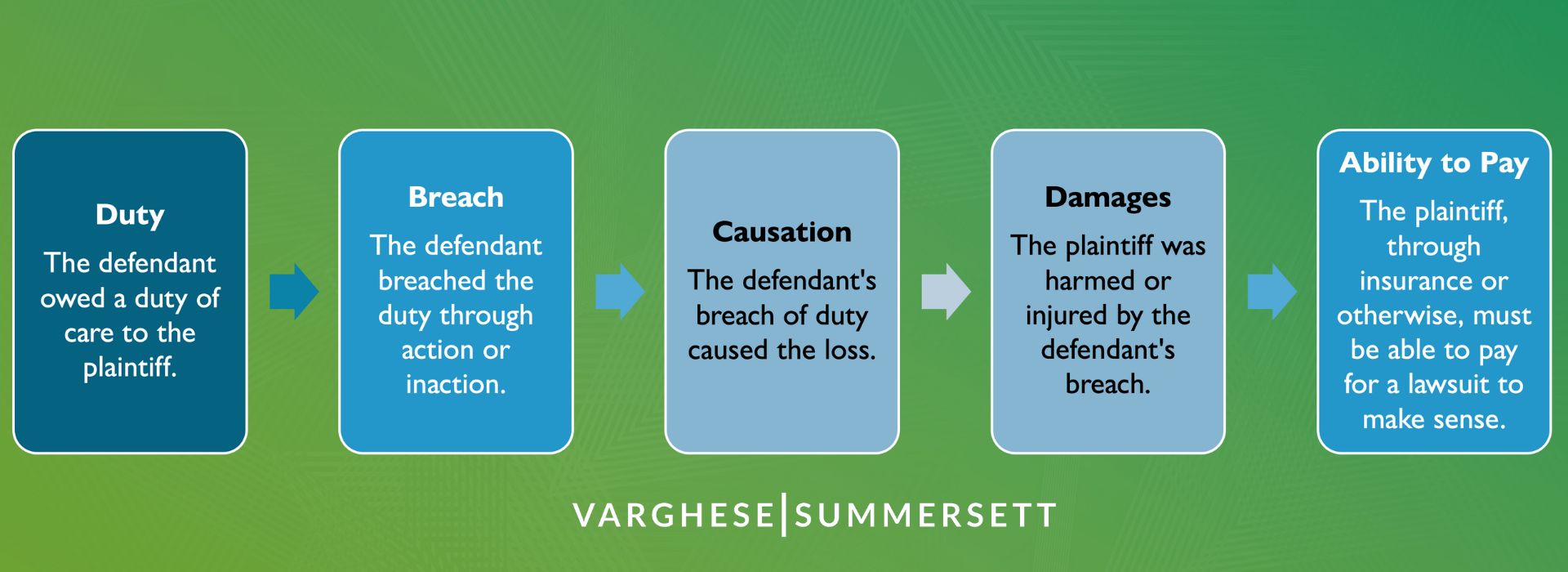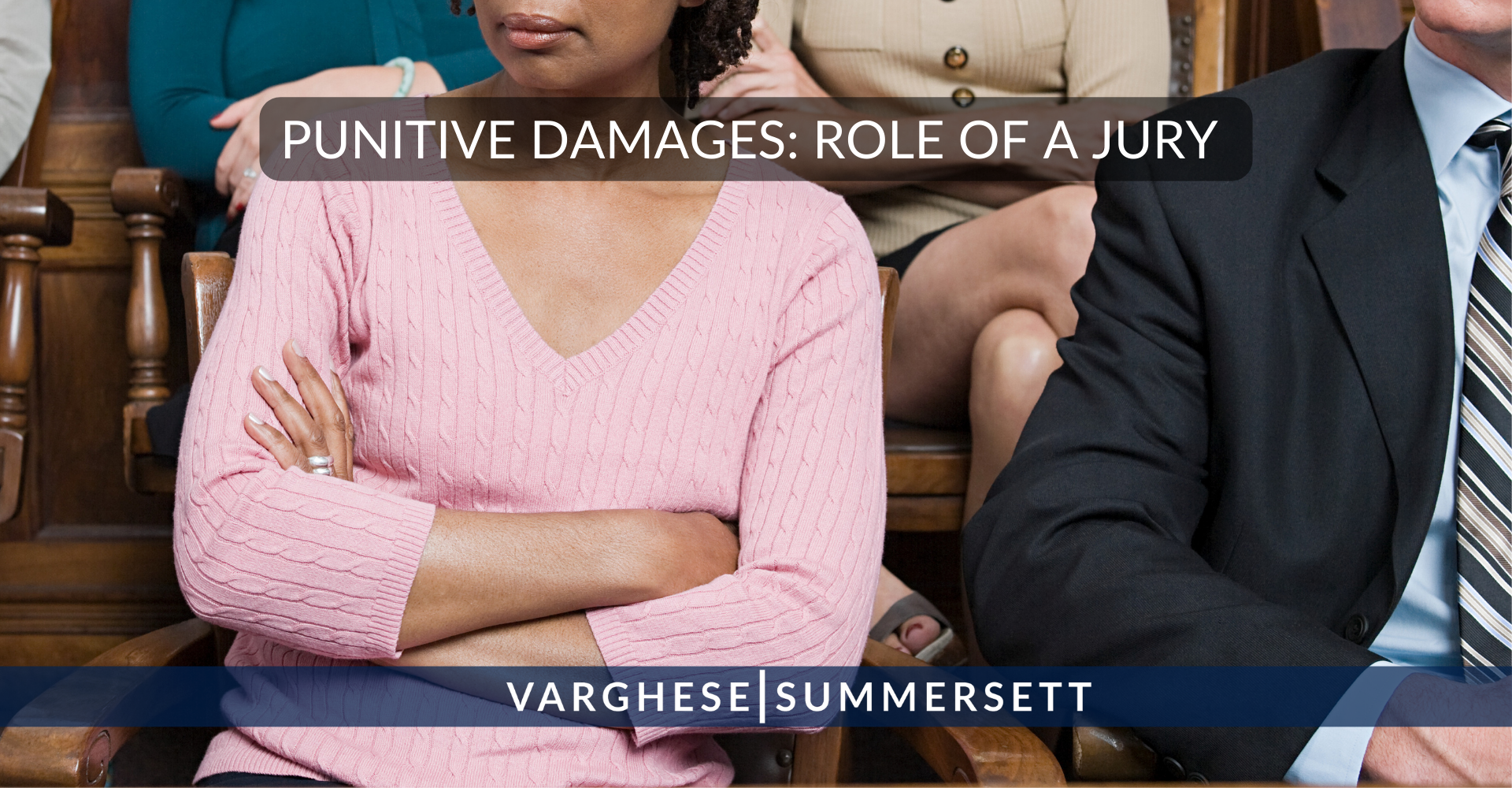
Punitive Damages in Texas Personal Injury Cases
What are punitive damages in Texas?
Punitive damages in Texas, also known as exemplary damages, are monetary awards given in civil lawsuits as a punishment to the defendant and to deter others from engaging in similar conduct. According to Chapter 41 of the Texas Civil Practice and Remedies Code, these damages are awarded when the defendant’s actions are proven to be fraudulent, malicious, or grossly negligent. The intent behind punitive damages is not to compensate the plaintiff, but rather to penalize wrongful actions and discourage future similar behavior.
When someone is injured in an accident, it’s often caused by another party’s negligence – that is, a careless mistake or reckless act. But what if it goes beyond that and turns out the behavior was intentional or malicious?
That is when punitive damages come in.
Punitive damages are a type of monetary compensation awarded to victims who were injured due to another person or company’s fraud, malice or gross negligence. They are designed to punish the defendant for their egregious actions and to deter others from engaging in similar conduct in the future.
In this article, the experienced attorneys at Varghese Summesett Injury Law Group explain punitive damages in Texas personal injury cases, including when they are sought, how they are proven, and how our law firm can help if you’ve been injured in an accident.
Please take a moment to watch this short video by an experienced personal injury lawyer Ty Stimpson who gives an overview of the types of damages in personal injury cases in Texas.
Punitive Damages in Texas Personal Injury Cases
The most common type of damages in Texas personal injury cases are economic and non-economic damages – also referred to as “compensatory damages.” They are designed to compensate a victim for the losses they have suffered, such as medical bills, lost wages, and pain and suffering.
Punitive damages, meanwhile, are not awarded in every personal injury case. In fact, they are considered an exception rather than the rule, reserved for cases where the defendant’s conduct was especially reprehensible. Also referred to as “exemplary damages,” punitive damages are a special form of relief intended to punish the wrongdoer for their gross negligence and discourage similar behavior in the future.
Under Section 41.003 of the Texas Civil Practice and Remedies Act, exemplary damages may be awarded only if the claimant proves by clear and convincing evidence that the harm with respect to which the claimant seeks recovery of exemplary damages results from:
1) fraud;
2) malice; or
3) gross negligence.
This is a relatively high standard of proof, and as a result, the awarding of punitive damages is less frequent than compensatory damages.

Proving Fraud, Malice, or Gross Negligence in a Punitive Damages Claim
In Texas, punitive damages, or exemplary damages, provide a unique layer to the personal injury litigation process. Unlike compensatory damages aimed at making the victim whole again, punitive damages serve to penalize or punish the defendant for exceptionally harmful behavior and deter others from similar conduct. However, securing these damages involves proving fraud, malice, or gross negligence — an often challenging process requiring substantial legal prowess.
Before we delve into the proof process, it’s essential to understand what fraud, malice, and gross negligence mean in a Texas legal context.
Fraud
Fraud refers to knowingly making a false and material representation with the intent to induce someone to take action on the misrepresentation.
Malice
Malice in Texas is defined by the Texas Civil Practice and Remedies Code as a specific intent by the defendant to cause substantial injury or harm to the claimant.
Gross Negligence
Gross Negligence is more than just carelessness. It involves an act or omission—like a conscious decision to endanger others—that a reasonable person would know is likely to cause injury, reflecting a complete disregard for the safety and welfare of others.
What is the Standard for Punitive Damages in Texas?

The Burden of Proof: Clear and Convincing Evidence
To successfully claim punitive damages in Texas, the plaintiff must provide “clear and convincing” evidence that the defendant acted with fraud, malice, or gross negligence. This standard is higher than the “preponderance of evidence” typically required in personal injury cases.
In essence, clear and convincing evidence means that the plaintiff must present highly credible evidence that makes the existence of fraud, malice, or gross negligence highly probable. The type of evidence required largely depends on the specifics of the case, but can include:
Witness testimonies: Eyewitness accounts or expert testimonies can help demonstrate the defendant’s harmful conduct.
Physical evidence: Items such as photographs, videos, or documents can be powerful proof of fraudulent or grossly negligent behavior.
Records and documents: In cases involving corporations, internal memos, emails, or other records can sometimes reveal fraudulent activities or a pattern of gross negligence.
Navigating the complexities of punitive damages, and proving fraud, malice, or gross negligence, requires an in-depth understanding of the law and a strategic approach. At Varghese Summersett Injury Law Group, our experienced attorneys are equipped with the knowledge and resources necessary to help clients present a strong, convincing case.
While these requirements might seem daunting, having experienced legal representation can significantly increase your chances of successfully securing punitive damages.
Are Punitive Damages Taxable?
The taxability of damages in Texas follows federal guidelines:
- Compensatory Damages for Physical Injuries or Sickness: Generally not taxable.
- Compensatory Damages for Non-Physical Injuries (such as emotional distress not originating from a physical injury): Taxable.
- Punitive Damages: Always taxable, regardless of the type of case.
- Nominal Damages: Generally not taxable unless they are a part of a punitive damage award.
Differences Between Compensatory Damages and Punitive Damages in Texas
| Aspect | Compensatory Damages | Punitive Damages |
|---|---|---|
| Purpose | To compensate the plaintiff for losses suffered due to the defendant’s actions. | To punish the defendant for egregious behavior and deter similar conduct in the future. |
| Types | Economic (medical bills, lost wages) and Non-Economic (pain and suffering, emotional distress). | Not applicable, as punitive damages are not meant for compensation. |
| When Awarded | Commonly awarded in personal injury cases to cover actual losses. | Awarded in exceptional cases where defendant’s actions were fraudulent, malicious, or grossly negligent. |
| Legal Requirement | Standard proof is ‘preponderance of the evidence’—the damage or loss is more likely than not caused by the defendant. | Requires ‘clear and convincing evidence’ that the defendant acted with fraud, malice, or gross negligence. |
| Taxation | Generally not taxable for physical injuries or sickness; taxable for non-physical injuries. | Always taxable, regardless of the case specifics. |
Ordinary Negligence v. Gross Negligence
In Texas personal injury law, understanding the differences between ordinary negligence and gross negligence is crucial, as it can significantly impact the potential compensation a victim may receive. These two legal terms, although similar, carry distinct implications for both liability and damages in a personal injury case.
Ordinary Negligence: A Breach of Duty
Ordinary negligence is the failure to exercise the level of care that a reasonably prudent person would have exercised in a similar situation. It typically involves carelessness or simple mistakes that lead to an accident and subsequent injury. For instance, a driver who fails to stop at a red light and causes a car accident could be considered ordinarily negligent.

Proving ordinary negligence in personal injury cases involves establishing four crucial elements:
- Duty: The defendant had a legal duty to act or not act in a certain way.
- Breach: The defendant breached this duty by acting or failing to act.
- Cause: This breach directly caused the plaintiff’s injuries.
- Damages: The plaintiff suffered damages due to the defendant’s actions.
For instance, a driver who was texting while driving, resulting in an accident, can be proven negligent as they failed in their duty to drive safely, causing harm to another party.
Gross Negligence: An Extreme Disregard for Safety
On the other hand, gross negligence in Texas is
defined by a higher degree of misconduct. It is not just carelessness but an act or omission—like a conscious decision to drive while intoxicated—that reflects a complete disregard for the safety and welfare of others.
According to Texas Civil Practice and Remedies Code Section 41.001(11), gross negligence means an act or omission:
- which when viewed objectively from the standpoint of the actor at the time of its occurrence, involves an extreme degree of risk, considering the probability and magnitude of the potential harm to others; and
- of which the actor has actual, subjective awareness of the risk involved but nevertheless proceeds with conscious indifference to the rights, safety, or welfare of others.
In essence, gross negligence involves behavior that is more culpable than simple carelessness. Gross negligence is only proved in a small fraction of all personal injury cases, as most arise from ordinary negligence rather than gross negligence or intentional misconduct. Therefore, while punitive damages can have a significant impact when awarded, such cases are relatively rare.
Examples of Scenarios that could Result in Punitive Damages
Punitive damages in Texas personal injury cases serve a unique role. Unlike compensatory damages, which aim to reimburse victims for their losses, punitive damages are designed to penalize, particularly egregious misconduct and deter similar conduct in the future.
However, to warrant punitive damages, the misconduct must surpass ordinary negligence, meeting the legal definitions of fraud, malice, or gross negligence. Here are some examples of scenarios where punitive damages could be applicable.
Drunk Driving Accidents
A classic example of a situation where punitive damages might be awarded is in the case of a drunk driving wreck. If a driver makes the conscious decision to drive while intoxicated and subsequently causes an accident, this may be considered gross negligence due to their blatant disregard for the safety of others. The jury might award punitive damages to punish the intoxicated driver and deter others from engaging in similar behavior.
Defective Products
Punitive damages can also be awarded in cases involving defective products. Suppose a manufacturer knowingly sells a product with a defect that could potentially harm consumers and fails to recall the product or warn the public about the defect. In that case, this could be seen as gross negligence or even fraud, potentially making the manufacturer liable for punitive damages.
Deliberate Exposure to Harmful Substances
If an employer knowingly exposes their employees to harmful substances without proper protective measures or fails to inform them about potential risks, this might qualify as gross negligence or even fraud. Such a scenario could potentially result in punitive damages if the employees suffer health issues as a result.
Remember, obtaining punitive damages requires demonstrating by clear and convincing evidence that the harm resulted from fraud, malice, or gross negligence, which is a higher standard of proof than for compensatory damages. This often necessitates the skills and experience of a seasoned legal team.
At Varghese Summersett Injury Law Group, we have the expertise to help you navigate this complex landscape and pursue justice in the form of punitive damages where applicable.

Who Decides Punitive Damages in Texas: The Role of a Jury
In Texas, when it comes to awarding punitive damages in a personal injury case, the decision is generally in the hands of a jury. The jury’s role in a personal injury trial is to determine the facts, decide liability, and establish the amount of damages to be awarded.
Understanding the Jury’s Role
Once a case makes it to trial, the jury first determines whether the defendant is liable for the plaintiff’s injuries. This process involves deciding whether the defendant was negligent and whether this negligence caused harm to the plaintiff.
If the defendant is found liable, the jury then considers the amount of compensatory damages to be awarded to the plaintiff. These are damages designed to compensate the plaintiff for actual losses incurred, such as medical bills and lost wages.
However, in certain cases where the defendant’s conduct was particularly egregious or reckless—meeting the legal standards for fraud, malice, or gross negligence—the jury may also consider awarding punitive damages.
Awarding Punitive Damages
The purpose of punitive damages is not to compensate the plaintiff but to punish the defendant and deter similar behavior in the future. As per Texas law, to award punitive damages, the jury must find by clear and convincing evidence that the harm resulted from fraud, malice, or gross negligence.
It’s important to note that the amount of punitive damages awarded can’t exceed certain limits set by Texas law. In most cases, punitive damages may not exceed $200,000 or two times the amount of non-economic damages up to $750,000, whichever is greater.
How Varghese Summersett Injury Law Group Can Help
At Varghese Summersett Injury Law Group, we believe in securing justice for our clients. Our seasoned attorneys understand the nuances of Texas personal injury law and have a proven track record of success in securing both compensatory and punitive damages.
We have the resources, experience, and expertise to help you navigate the complexities of personal injury case and we’ll fight aggressively to ensure that justice is served. Importantly, we operate on a contingency fee basis, meaning you won’t pay us anything upfront or until we win your case. That way, you can focus on your recovery while we handle the legal complexities of your case.
To start your journey towards justice, call us today at (817) 207-4878 (HURT). Time is of the essence in personal injury cases, and the sooner we can start building your case, the better.

FAQs about Punitive Damages in Texas Personal Injury Claims
What is the statute of limitations for personal injury cases in Texas?
In Texas, the statute of limitations for personal injury cases is generally two years from the date of the incident.
Can punitive damages be awarded in every personal injury case?
No, punitive damages are only awarded in cases where the defendant’s actions involved fraud, malice, or gross negligence.
How common are punitive damages?
Punitive damages serve to penalize the defendant for particularly egregious or harmful behavior, thereby deterring similar future misconduct. However, despite the substantial potential impact of punitive damages, their award is not an everyday occurrence in Texas courts.
According to the Texas Civil Practice and Remedies Code Section 41.0031, punitive damages in Texas may only be awarded if the claimant proves by clear and convincing evidence that the harm resulted from fraud, malice, or gross negligence. This is a relatively high standard of proof, and as a result, the awarding of punitive damages is less frequent than compensatory damages.
What is the process for seeking punitive damages in Texas personal injury cases?
The process of seeking punitive damages typically begins with hiring a person injury attorney who will file a personal injury lawsuit against the defendant. The claimant must then present compelling evidence to show that the defendant’s actions were malicious, fraudulent, or grossly negligent, thus warranting punitive damages.
To navigate this complex process, legal representation is vital. The attorneys at Varghese Summersett Injury Law Group have extensive experience in personal injury law and understand how to craft compelling arguments for punitive damages.
Is there a cap on punitive damages in Texas personal injury cases?
In Texas, punitive damages are limited to two times the amount of economic damages plus an equal amount of non-economic damages up to $750,000, or $200,000, whichever is greater.
Can I seek punitive damages in a wrongful death claim?
Yes, Texas law allows punitive damages in wrongful death claims if the defendant’s actions involved fraud, malice, or gross negligence.
What evidence is needed to secure punitive damages?
The claimant must provide clear and convincing evidence that the defendant’s actions were malicious, fraudulent, or grossly negligent.
What is a contingency fee?
A contingency fee is an arrangement where a lawyer takes a percentage of the award or settlement from a personal injury case, instead of charging you an hourly rate or retainer at the outset. At Varghese Summersett Injury Law Group, we operate on a contingency fee basis. This means that you don’t pay us upfront and only owe us if we win your case. That way, you can focus on your recovery and let us handle the complex legal aspects of your case.
Contact us today to discuss your legal options and get started on the road to justice. Call Varghese Summersett today at (817) 207-4878 (HURT) for a free consultation.



